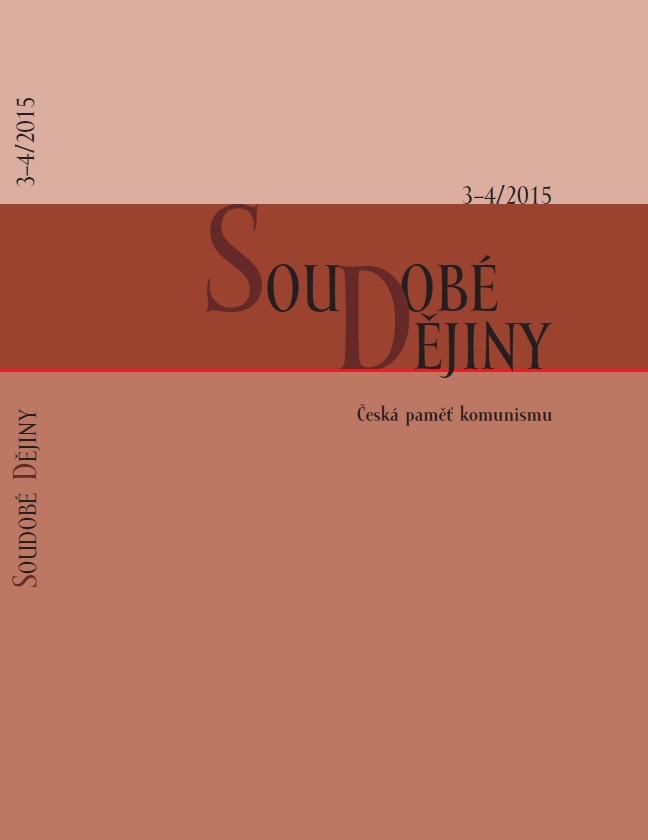Americká politika, korejská válka a poučení z Mnichova (2. část)
American Policy, the Korean War, and the Lessons of Munich (Part 2)
Author(s): Petr MarešSubject(s): Political history, WW II and following years (1940 - 1949), Post-War period (1950 - 1989)
Published by: AV ČR - Akademie věd České republiky - Ústav pro soudobé dějiny
Keywords: Munich Agreement;Korean War;Harry S. Truman;United States of America;policy;
Summary/Abstract: In Part 1 of this article, published in the last issue of Soudobé dějiny (vol. 22, 2015, nos. 1–2, pp. 9–29), the author discusses how the lessons from the mistakes of appeasement, including the signing of the Munich Agreement in autumn 1938, were projected in US foreign policy during the Second World War and at the beginning of the Cold War. In Part 2, based on published and unpublished American sources, he considers the infl uence of this factor on the US approach taken in the Korean War in the early 1950s. He seeks to demonstrate that the decision of the Truman Administration to substantially intervene in this confl ict was a direct consequence of the negative attitude to the policy of appeasing an aggressor. This attitude was also shared by the American public, regardless of party affi liation and political sympathies. Arguments based on the rejection of appeasement, however, soon began to be used by the Republicans as ammunition in the election campaign against the incumbent Democrats and the choice of strategy also became a matter of dispute in the choice of strategy on the Korean battlefi eld after China entered the war. Whereas the White House wished to avoid an unlimited confl ict with China, the Commander-in-Chief of the United Nation Command in Korea, General Douglas MacArthur (1880–1964), was in favour of an uncompromising approach and in fact ceased to obey President Harry S. Truman (1884–1972). After being relieved of his command by Truman, MacArthur became the chief critic of his policies and a hero of Truman’s Republican opponents. In spring 1951, the Republicans organized a special Senate committee hearing on the circumstances of MacArthur’s suspension. The author looks in detail at this exceptional clash in post-war US domestic politics, which was meant to be triumphantly used against MacArthur, but gradually changed into a debacle in consequence of, among other things, the compelling testimonies of Secretary of State Dean Acheson (1893–1971) and Secretary of Defense George C. Marshall (1880–1959). In his conclusion, the author seeks to demonstrate how other US presidents returned to the ‘lessons of Munich’, and he argues that these lessons became Truman’s lasting political legacy and as such became fi rmly rooted in American political discourse.
Journal: Soudobé Dějiny
- Issue Year: XXII/2015
- Issue No: 3-4
- Page Range: 259-298
- Page Count: 40
- Language: Czech

